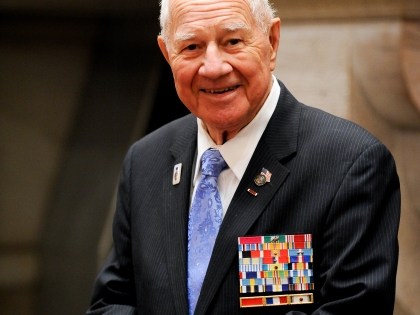
Larkin Rsds Program Funded In State Budget
William J. Larkin Jr.
September 29, 2005
Senator Bill Larkin (R-C, Cornwall-on-Hudson) today announced that the 2005 State Budget has included, for the first time, funding in the amount of $125,000 to finance the RSDS Prevention and Public Awareness program.
Originally proposed by Senator Larkin in 2002, this funding will establish a program to promote public and medical awareness of the causes of reflex sympathetic dystrophy syndrome (RSDS), the value of early detection and possible treatments. The bill also assists the medical community by promoting research to accurately identify, diagnose and test for this disease.
Larkin's plan will create a public education and outreach campaign through brochures, educational and other print materials to promote RSDS education and enable individuals to make informed choices about their health.
Reflex sympathetic dystrophy syndrome is a chronic condition characterized by severe burning pain, pathological changes in bone and skin, excessive sweating, tissue swelling, and extreme sensitivity to touch. More specifically, RSDS is a nerve disorder that occurs at the site of an acute injury, but may also occur without apparent injury. While the causes of RSDS are unknown, the syndrome is thought to be the result of damaged nerves of the sympathetic nervous system.
"RSDS is often misdiagnosed because it remains poorly understood," said Senator Larkin. "But, the prognosis for patients suffering from RSDS is good if treatment is begun early, ideally within three months of the first symptoms."
If treatment is delayed, the disorder can quickly spread to the entire limb, and changes in bone and muscle may become irreversible, resulting in limited mobility, atrophy of the muscles, and eventual permanent disability.
"I was originally made aware of RSDS by Dr. Denise McHale, a Middletown neurologist, and one of her patients who has the disease," said Senator Larkin. "Dr. McHale has seen many individuals in Orange and Ulster Counties who have RSDS and asked that some type of outreach program be created to help those who are afflicted. Subsequently, I designed this program and eagerly anticipate its full implementation. I strongly believe that both the public and health care providers will benefit from it."